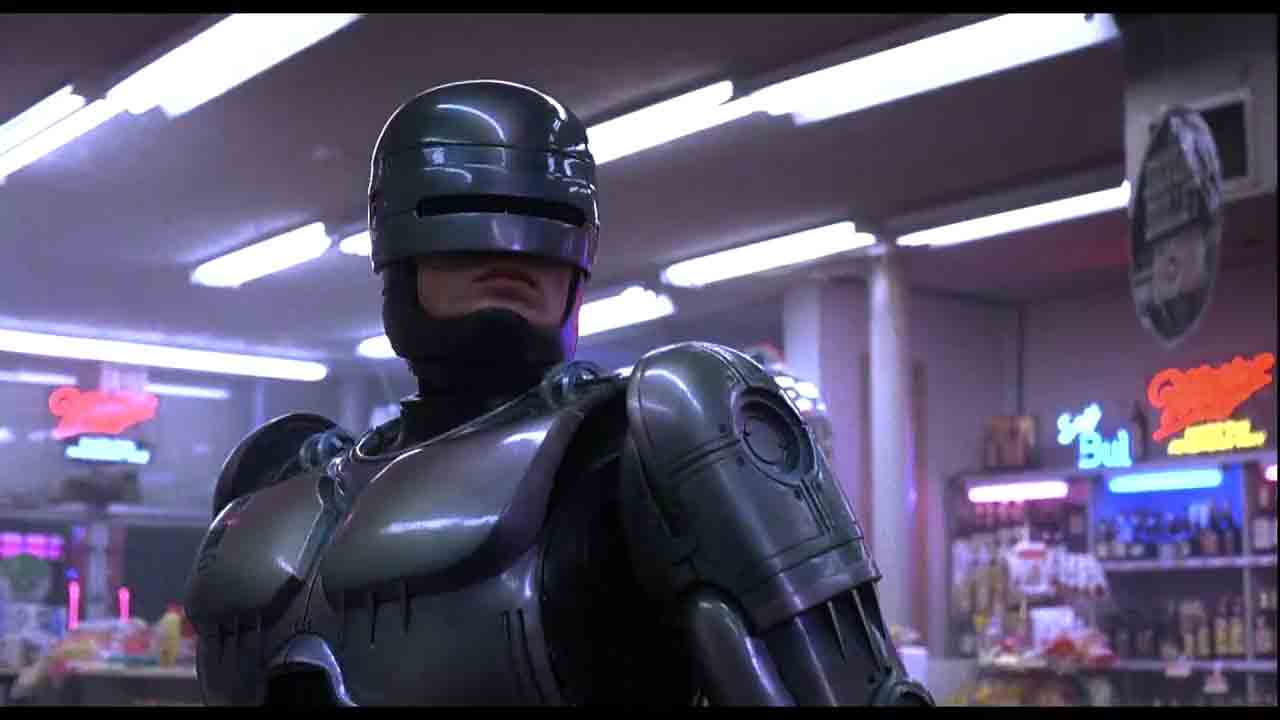RoboCop didn’t predict shit.
I see certain statements come up a lot in pop culture-literate leftist circles — and I am afraid this is going to be a Political Piece, one that assumes shared beliefs (although maybe no more than simply a recognition that something is wrong in the world) — that RoboCop predicted our world today. Or They Live, or Starship Troopers, or some other dystopian movie.
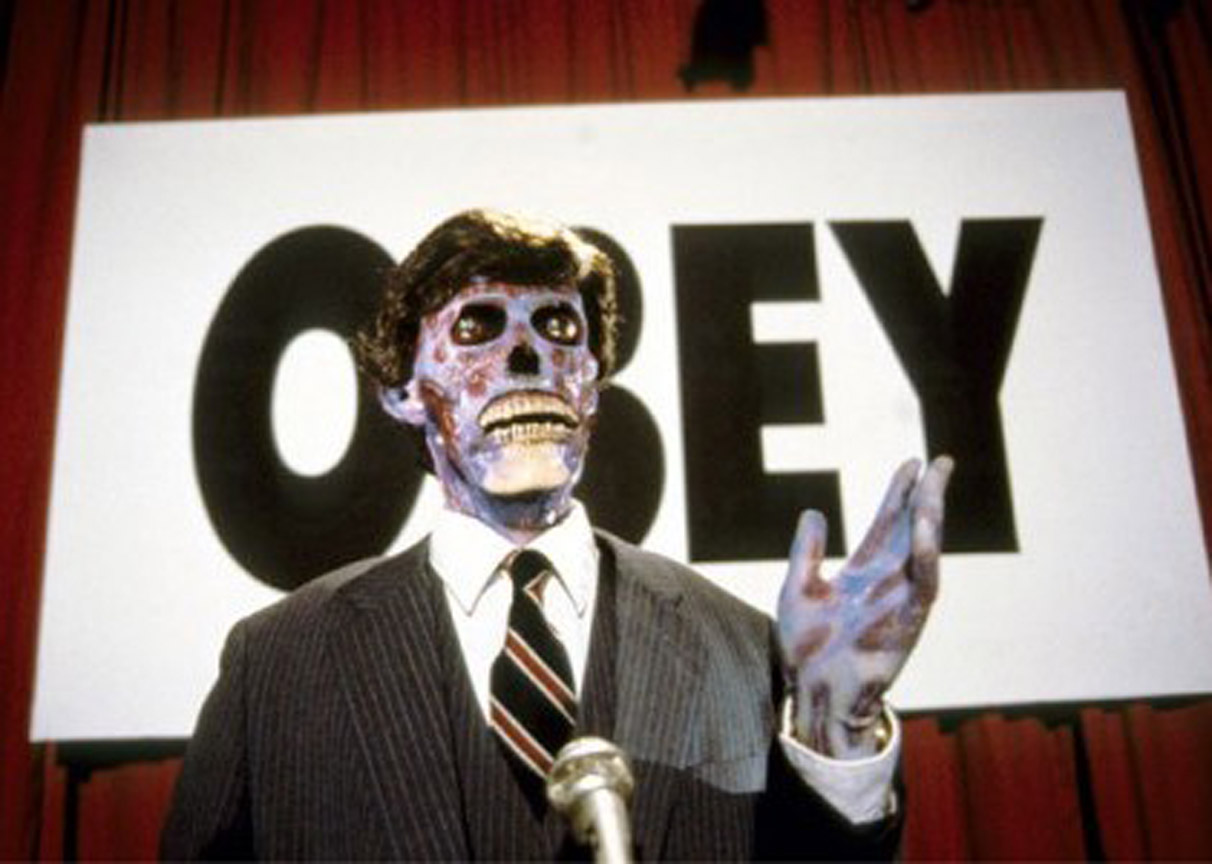 They want us to look at those movies, depicting a world where everyone worships a stupid state that mixes brutal violence and inanity to ensure a sense of order. Then, they want us to look at the world, where exactly those states seem to fill the West. What else can we say? They clearly were predictive.
They want us to look at those movies, depicting a world where everyone worships a stupid state that mixes brutal violence and inanity to ensure a sense of order. Then, they want us to look at the world, where exactly those states seem to fill the West. What else can we say? They clearly were predictive.
But the films aren’t predictive. They aren’t predictive because they’re not trying to predict anything; they’re trying to depict. It’s not a coincidence most of them were made in the heyday of Ronald Reagan and Margaret Thatcher.
RoboCop (to use it as a representative example) didn’t need to predict the way police work today, because those same ideas were just as present in 1987. In fact, thank God it isn’t trying to predict anything, or the complete lack of any acknowledgement of the racism at work in police forces would be disqualifying.
And it wasn’t making any predictions that in the future, the population would be too distracted by simplistic, repetitive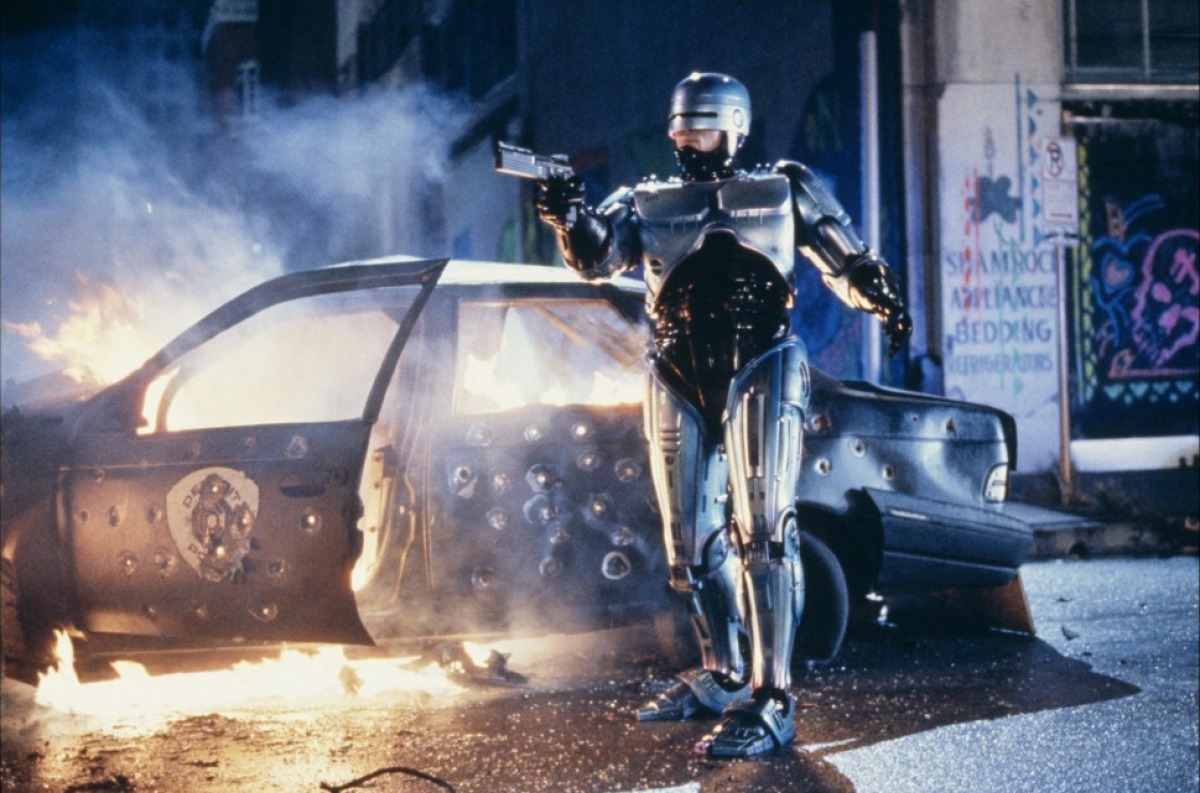 media to care about their world. And again, thank God for that: it’s a lazy observation when people do make it, and it’s far less accurate in describing the fragmented, complex ways we consume even mass art in 2017.
media to care about their world. And again, thank God for that: it’s a lazy observation when people do make it, and it’s far less accurate in describing the fragmented, complex ways we consume even mass art in 2017.
Why do we want prognosticators so badly? At the risk of beating one of my hobbyhorses to death, I’d suggest it’s a way to sneak back in, in the guise of leftist politics, the old dull idea of the author as genius. Even when it seems like we have brought back into focus the cultural and economic world in which an artist creates and from which he (the pronoun is not accidental) draws, we can still be in awe of his brilliance. He foresaw the future, that things would get worse — or, at the very least, stupider.
In the case of RoboCop in particular, this isn’t quite earned. Paul Verhoeven is a curious figure, not quite the Jeremiah-style invective-spitter he is sometimes made out to be. His movies (particularly Starship Troopers, RoboCop, and Total Recall, which form something of a set) present bizarre futures where things have gotten worse. There’s an intermingling of fascistic worship of the state and worship of the corporation. It seems designed to appeal to film-loving leftists.
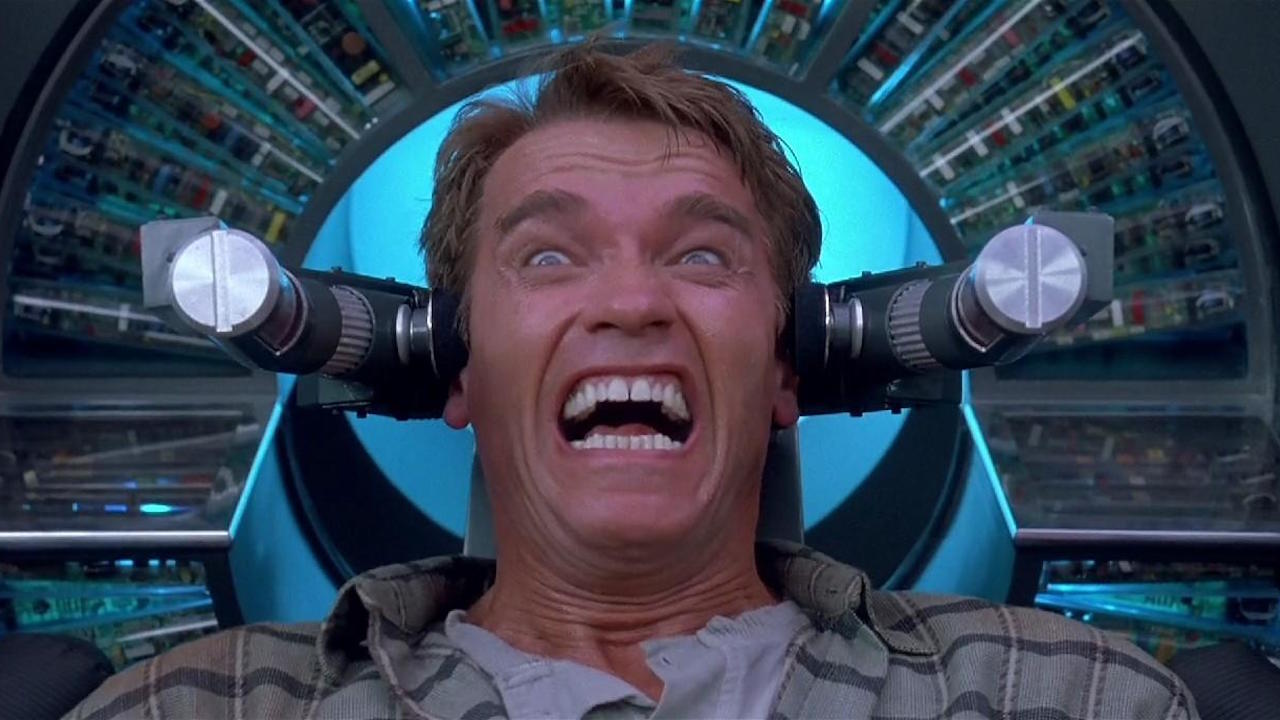 But Verhoeven has always been more self-aware than I think he is given
But Verhoeven has always been more self-aware than I think he is given 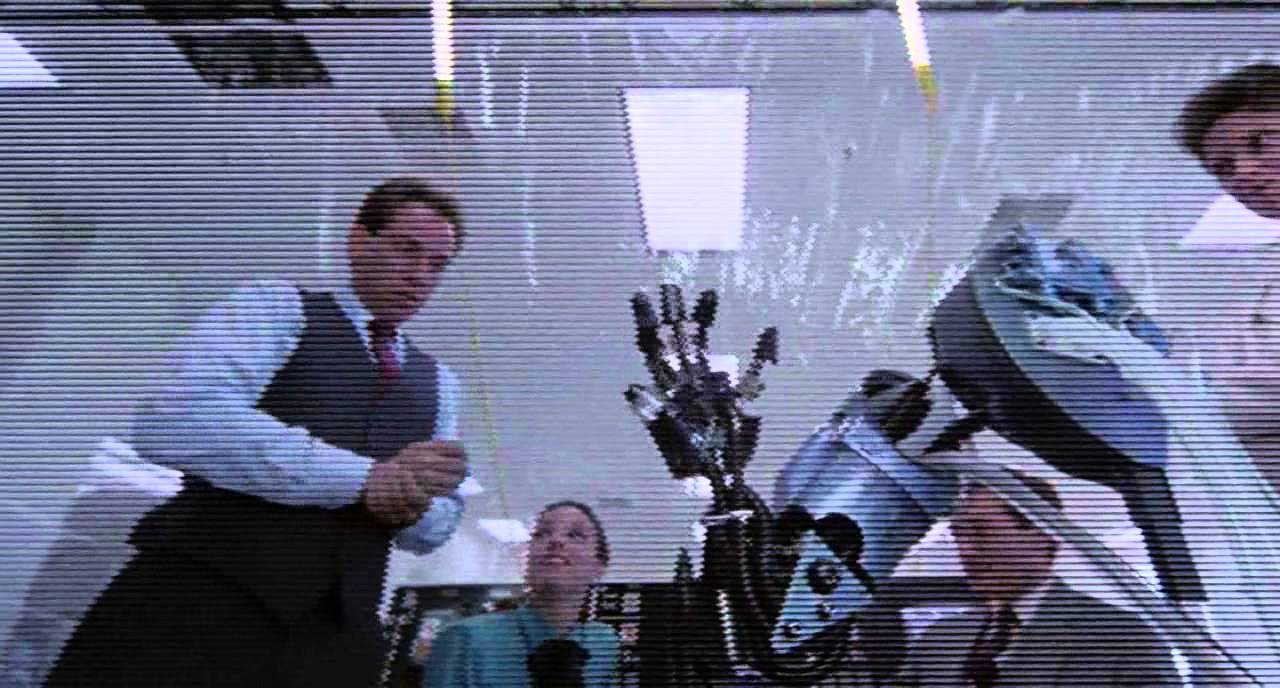 credit for, and partially aware of that on which he is open to critique. He’s aware that his movies visually celebrate the fascism they depict. RoboCop is a fun movie, and the action scenes are enthralling. Seeing ED-209 blow the guy apart is hilarious, in a terrible way, and in being amused by the horror we are part of it.
credit for, and partially aware of that on which he is open to critique. He’s aware that his movies visually celebrate the fascism they depict. RoboCop is a fun movie, and the action scenes are enthralling. Seeing ED-209 blow the guy apart is hilarious, in a terrible way, and in being amused by the horror we are part of it.
So, there are both universal and particular issues with the idea of Verhoeven-as-oracle: that it assumes the artist is predicting the present/future from a time in which whatever cultural trend was in its nascent stages, only able to be picked out by their individual genius (when in fact, all those elements were just as present then — that they are depicting, not predicting), and that it ignores the fact that we are not shielded from the stultifying excitement of the stupid future.
I’d like to give a slightly different way of thinking about RoboCop in particular and dystopian fiction in general, drawing on the Book of Revelation. Revelation may be one of the most mistreated books of the Christian Bible. It, like these movies, is not predicting the future — or, at least, is not predicting it in the way that Kirk Cameron and millions of conservative evangelicals would have you believe.
John was not telling his readers, “Keep an eye out for this Antichrist guy — he could come at any time!” For John, he was already here. He was named Nero (whose name, converted from Hebrew letters into Hebrew numbers, calculated to 666), and he was a very literal, current presence. But he wasn’t just Nero; he was every force of evil who would rule the state to come. He was a particular present figure, and he was a representative of something bigger, something supra-historical.
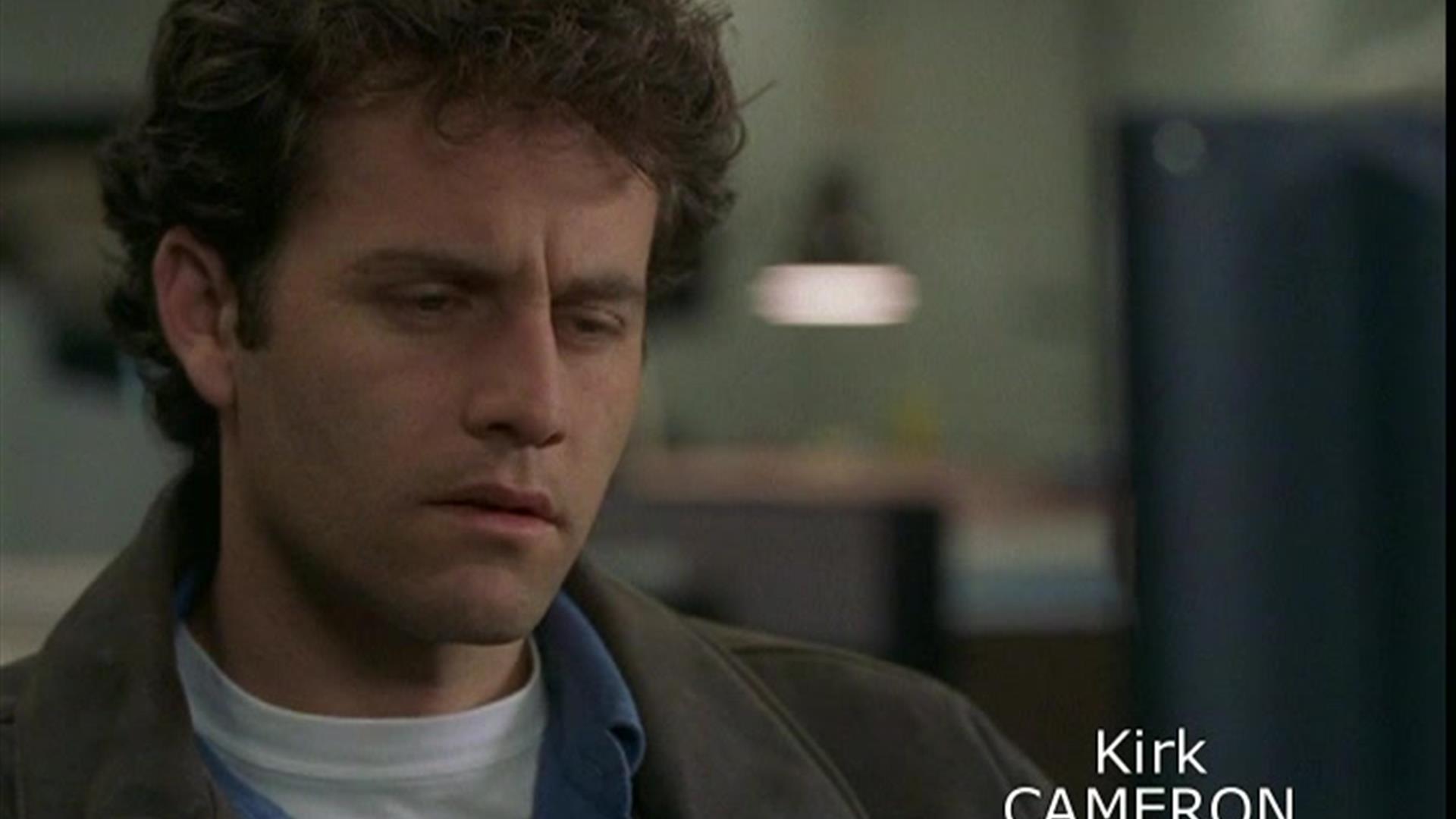 Just as billions of Christians have assumed that John was predicting someone to come and shuddered as they waited for its arrival, political film fans have (in perhaps a more circumspect manner) looked at the modern corporation and assumed that the films of the 80s and 90s “predicted” them.
Just as billions of Christians have assumed that John was predicting someone to come and shuddered as they waited for its arrival, political film fans have (in perhaps a more circumspect manner) looked at the modern corporation and assumed that the films of the 80s and 90s “predicted” them.
Instead, we should watch these movies as both hyper-intensified versions of the historical circumstances of the art, material specifics made psychedelic and exaggerated to emphasize their reality (no more predictions than Marx’s statements about specters haunting meant he believed in ghosts), and also observations about pervasive forces that transcend a historical moment. We can take those, examine them, enjoy them, be thrilled and fascinated by them — but always reinterpret them for the world now, the world that no one predicted. Not Paul Verhoeven, not John Carpenter, not Philip K. Dick. Let’s not waste any more time inventing oracles.

